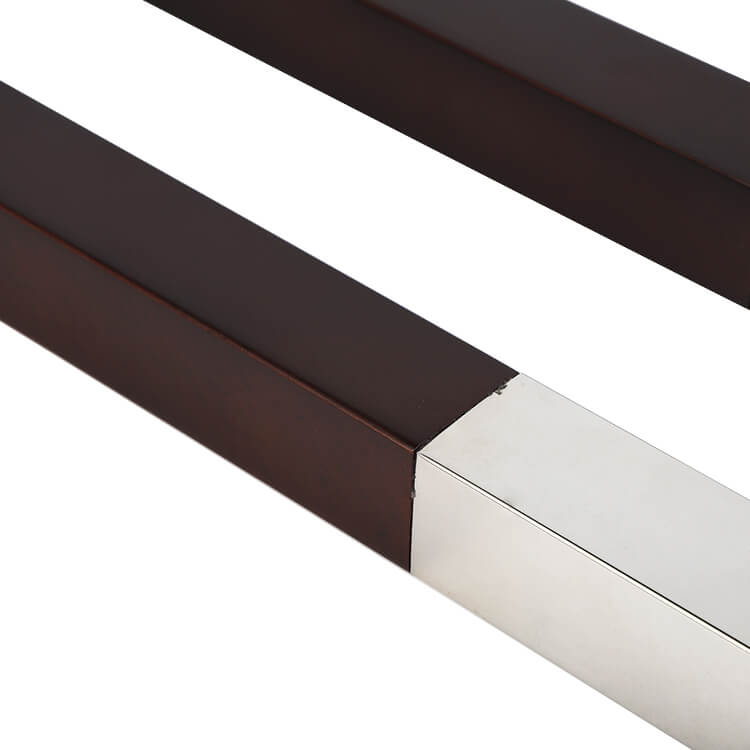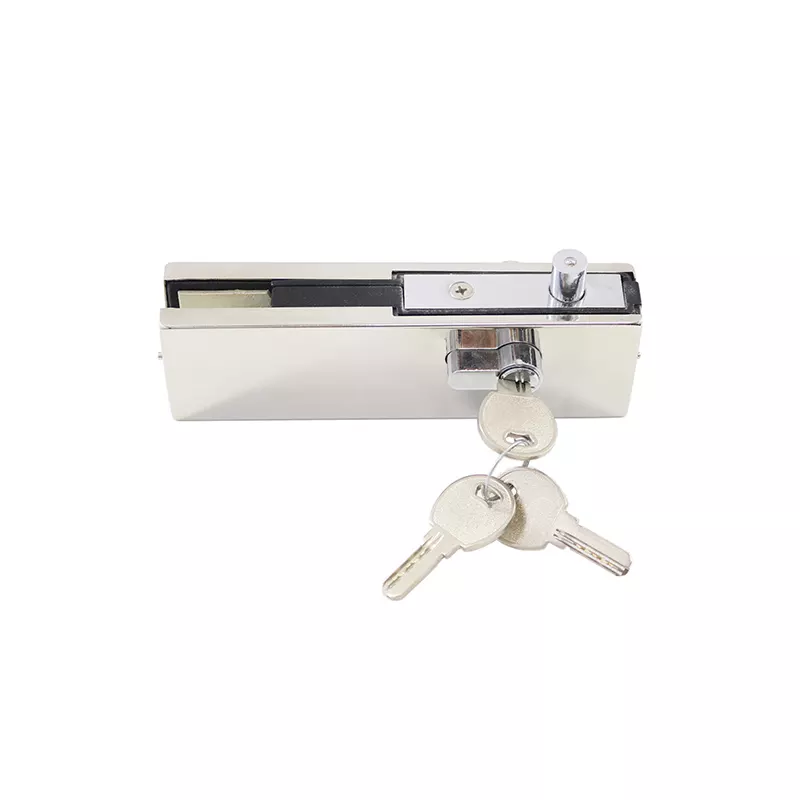The Importance of Corrosion Resistance in Stainless Steel Glass Door Locks
Stainless steel glass door locks are a popular choice for commercial and residential buildings because of their durability and aesthetic appeal. However, it is important to consider the corrosion resistance of stainless steel when selecting a glass door lock. Corrosion can cause the lock to become damaged or fail, which could compromise the security of your building.
Factors Affecting Corrosion Resistance
Several factors can affect the corrosion resistance of stainless steel glass door locks, including:
Alloy Composition:
Stainless steel is an alloy of iron, chromium, and other elements. The amount of chromium in the alloy affects the corrosion resistance of the steel; the higher the chromium content, the more resistant the steel is to corrosion.
Surface Finish:
The surface finish of the stainless steel can also affect its corrosion resistance. A smooth, polished finish is more resistant to corrosion than a rough or textured finish.
Exposure to Corrosive Elements:
Stainless steel is not completely impervious to corrosion, and it can be damaged by exposure to certain corrosive elements, such as salt water, chlorine, and acids.
Consequences of Corrosion
Corrosion can cause a variety of problems for stainless steel glass door locks, including:
Pitting:
Corrosion can cause small pits to form on the surface of the stainless steel. These pits can grow over time and can eventually weaken the lock.
Cracking:
Corrosion can also cause the stainless steel to crack. Cracks can weaken the lock and make it more likely to fail.
Complete Failure:
In severe cases, corrosion can cause the stainless steel to fail completely. This can lead to the lock breaking, which could compromise the security of your building.
Benefits of Corrosion Resistance
Corrosion-resistant stainless steel glass door locks offer a number of benefits, including:
Increased Durability:
Corrosion-resistant stainless steel glass door locks are more durable than locks made from other materials, such as aluminum or brass. They are less likely to be damaged by exposure to corrosive elements and can last for many years.
Improved Security:
Corrosion-resistant stainless steel glass door locks are less likely to fail due to corrosion, which can help to improve the security of your building.
Choosing a Corrosion-Resistant Glass Door Lock
Choosing a corrosion-resistant stainless steel glass door lock is important for ensuring the durability and security of your building. Here are some tips for choosing a lock:
Look for a high-quality stainless steel alloy:
The higher the chromium content of the alloy, the more resistant the lock will be to corrosion.
Choose a lock with a smooth, polished finish:
A smooth finish will be more resistant to corrosion than a rough or textured finish.
Consider the environment where the lock will be used:
If the lock will be exposed to corrosive elements, such as salt water or chlorine, choose a lock made from a high-grade stainless steel alloy.
By following these tips, you can choose a corrosion-resistant stainless steel glass door lock that will provide years of reliable service.
-
What Types of Glass Office Door Locks Are Most Durable?
04-02-2026 -
The Advantages of Stainless Steel Glass Door Locks: Durability, Security, and Design
23-01-2026 -
Top Features of D Locks for Glass Doors: What to Look For
20-01-2026 -
Load Bearing, Security Level, and Durability Standards for Glass Door Locks
17-01-2026 -
Can frameless glass door locking hardware be customized for OEM projects?
15-01-2026
-
The Best Lock Options for Double Swing Glass Doors: Features and Benefits
31-01-2026 -
The Ultimate Guide to Glass Door Locks: Which One Is Right for You?
30-01-2026 -
What Lock Type Works Best for a Door with Glass Panels: Deadbolt, Keyed, or Smart?
29-01-2026 -
Hinged Glass Door Lock vs Sliding Glass Door Lock: Which Is Better?
28-01-2026 -
Glass Door to Wall Lock for Shower Rooms: What You Need to Know?
27-01-2026










